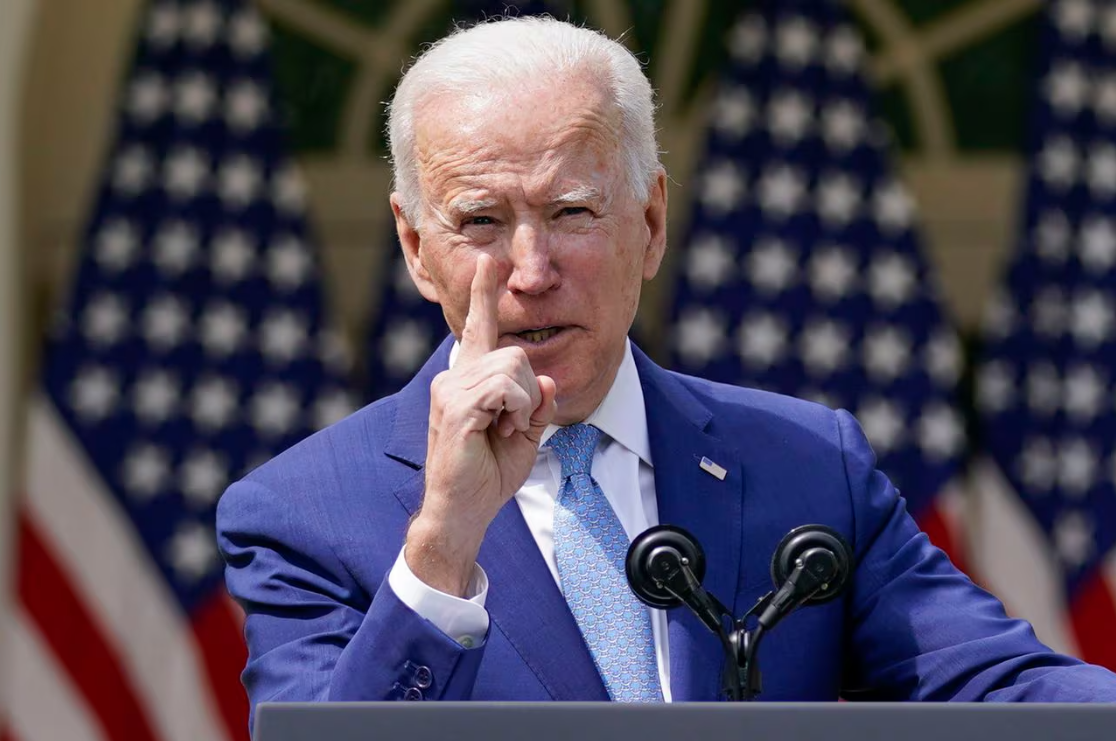拜登政府批准扩大枪支销售背景调查

【中美创新时报2024 年 4 月 12 日编译讯】(记者温友平编译)拜登政府批准了数十年来最广泛的联邦背景调查扩大范围,试图监管快速增长的网上、枪支展览以及通过私人卖家销售武器的影子市场,这些武器助长了枪支暴力。纽约时报记者Glenn Thrush 和 Erica L. Green 对此作了下述报道。
根据周四(11日)发布的一项规定,烟酒枪械和爆炸物管理局将要求任何“从事盈利枪支业务”的人注册为联邦许可的枪械经销商。这意味着这些卖家必须对潜在买家进行犯罪背景和心理健康检查。
这项新规定可能会面临法律挑战,在 ATF 已经监管的 80,000 家联邦经销商的基础上,可能会增加多达 23,000 家联邦经销商。ATF 是司法部资金不足的部门,一直在努力监控卖家。
该规定已收到超过 38 万条公众意见,将于一个月内生效。
国会共和党人多次阻止拜登总统实施全民背景调查,他正在利用 2022 年通过的两党枪支管制法中的一项条款来实现一项难以捉摸且得到公众广泛支持的政策目标:堵住所谓的枪支展示漏洞。
扩大联邦枪支许可证持有者的数量是拜登在几起大规模枪击事件后于 2023 年 3 月发布的行政命令中包含的几项枪支管制措施之一。
副总统卡马拉·哈里斯被选为白宫领导解决包括枪支政策在内的一系列政治性选举年问题的工作的副总统卡马拉·哈里斯,他在周三的电话会议中告诉记者,新规定解决了联邦背景调查中的“最大差距之一” 系统。
哈里斯说:“我们联邦背景调查系统中的这一单一漏洞造成了难以想象的痛苦和痛苦。”他还指出,枪支暴力现在是儿童死亡的主要原因。
她说:“在未来的几年里,我确实相信,通过这项新规则,无数家庭和社区将免受枪支暴力的恐怖和心碎之苦。”
得克萨斯州共和党参议员约翰·科宁 (John Cornyn) 提出了导致 2022 年法案通过的妥协方案,他指责政府“攫取权力”,将法律的语言延伸到涉及“从事该行业”的人,远远超出了其初衷 。
“我们的目标是为美国人民提供法律的可预测性和明确性,而不是让烟酒枪械管理局有机会对守法的美国人实施枪支管制制度,”他在去年对拟议规则的评论中写道。
许多州的无证私人卖家可以在枪支展上、在自家门外以及通过在线平台合法出售枪支,而无需接受背景调查系统的审查,该系统旨在防止向儿童、罪犯、家庭虐待者和精神障碍患者出售枪支。 疾病或毒瘾。
根据上周发布的枪支贩运分析报告,该局在 2017 年至 2021 年追踪的非法枪支案件中,每 10 起非法枪支案件就有 4 起涉及此类不受监管的销售,其中包括数千起影子经销商利用法律漏洞逃避背景调查的案件。
官员们表示,新规定的目的有两个:首先,将合法卖家纳入监管阳光下;其次,剥夺那些故意从事犯罪枪支销售的经纪人获得由变幻莫测的联邦枪支法提供的法律保护的机会。
此前,只有当经销商的主要生计来自于销售武器时,他们才被要求加入联邦系统。 现在的门槛要低得多——政府只需证明他们出售枪支是为了从他们的行为中“主要获取利润”。
未登记将被处以最高五年监禁和 25 万美元罚款。
ATF 主管史蒂文·M·德特尔巴赫 (Steven M. Dettelbach) 也表达了类似的语气。 “这是为了保护无辜、守法的美国人的生命以及法治,”他说。
德特尔巴赫是近十年来第一位获得参议院批准的烟酒枪械管理局常任理事,他监督了一系列较为温和的监管举措,包括监管被称为“幽灵枪”的致命自制枪支的努力。
政府认为新法规基础稳固,因为它植根于新通过的法律,而不是对现有法律的新解释。 尽管如此,这可能会引发法律诉讼。
去年该规则的初步版本公布后,反对拜登枪支管制努力的美国枪支拥有者组织称该规则是“后门”普遍背景调查,并誓言其“律师将准备提起诉讼”。 ”
这一消息发布之际,政府正在加紧努力寻找变通办法,以兑现对枪支暴力等问题向年轻选民和有色人种社区等关键选民的政策承诺,拜登的优先事项不可能在分裂的情况下获得通过。 国会。
用于犯罪的大量枪支是通过影子市场购买的,而且越来越多地通过在线市场购买,例如 Armslist,这是一个匹配买家和卖家的枪支克雷格列表。
2022 年 10 月,圣路易斯附近一家联邦授权经销商拒绝向一名有精神健康问题史的 19 岁男子购买 AR-15 型步枪。此后不久,他通过 Armslist 购买了一个——这一次没有进行背景调查——然后用它杀死了两人并伤害了其他几人。
本文最初发表于《纽约时报》。
题图:拜登总统。(ANDREW HARNIK/ASSOCIATED PRESS)
附原英文报道:
Biden Administration approves expansion of background checks on gun sales
By Glenn Thrush and Erica L. Green New York Times,Updated April 11, 2024
The Biden administration has approved the broadest expansion of federal background checks in decades in an attempt to regulate a fast-growing shadow market of weapons sold online, at gun shows, and through private sellers that has contributed to gun violence.
Under a rule released Thursday, the Bureau of Alcohol, Tobacco, Firearms and Explosives will require anyone “engaged in the business” of selling guns at a profit to register as a federally licensed firearms dealer. That means those sellers must run background criminal and mental health checks on potential buyers.
The new regulation, which is likely to face legal challenges, could add as many as 23,000 federal dealers to the 80,000 already regulated by ATF, an underfunded division of the Justice Department that already struggles to monitor sellers.
The rule, which drew more than 380,000 public comments, will take effect in a month.
President Biden, repeatedly blocked from enacting universal background checks by Republicans in Congress, is leveraging a provision of the sweeping bipartisan gun control law passed in 2022 to achieve an elusive policy goal that enjoys widespread public support: closing the so-called gun show loophole.
Expanding the number of federal firearms licensees was one of several gun control measures included in an executive order Biden issued in March 2023 after several mass shootings.
Vice President Kamala Harris, chosen to lead the White House’s efforts on a gamut of politically charged election-year issues, including gun policy, told reporters in a call Wednesday that the new regulation addressed “one of the biggest gaps” in the federal background check system.
“This single gap in our federal background check system has caused unimaginable pain and suffering,” said Harris, who also noted that gun violence was now the leading cause of death among children.
“In the years to come, I do believe countless families and communities will be spared the horror and heartbreak of gun violence by this new rule,” she said.
Senator John Cornyn, a Texas Republican who hashed out the compromise that led to the passage of the 2022 bill, has accused the administration of a “power grab” that stretched the law’s language involving those “engaged in the business” far beyond its original intent.
“Our goal was to provide the American people with predictability and clarity in the law, not to give the ATF an opportunity to impose a gun control regime on law-abiding Americans,” he wrote in a comment to the proposed rule last year.
Unlicensed private sellers in many states have been able to legally sell at gun shows, out of their houses, and through online platforms without having to submit to the background check system created to prevent sales to children, criminals, domestic abusers, and people with mental illnesses or drug addictions.
Four in 10 illegal gun cases tracked by the bureau from 2017 to 2021 involved such unregulated sales, including thousands from shadow dealers who used legal loopholes to evade background checks, according to an analysis of firearms trafficking released last week.
The purpose of the new rule is twofold, officials said: first, to pull legitimate sellers into the regulatory sunlight and, second, to deprive brokers who knowingly traffic in criminal gun sales of a legal shield provided by the vagaries of federal firearms laws.
Dealers have previously been required to join the federal system only if they derived their chief livelihood from selling weapons. The bar is much lower now — the government has to prove only that they sold guns to “predominantly derive a profit” from their actions.
Failing to register carries a penalty of up to five years in prison and $250,000 in fines.
Steven M. Dettelbach, the ATF director, struck a similar tone. “This is about protecting the lives of innocent, law-abiding Americans as well as the rule of law,” he said.
Dettelbach, the first permanent director of the ATF to be approved by the Senate in nearly a decade, has overseen a succession of more modest regulatory moves, including an effort to regulate deadly homemade firearms known as ghost guns.
The administration believes the new regulation is on solid footing because it is rooted in a newly passed law, rather than a novel interpretation of an existing one. Nonetheless, it is likely to prompt legal fights.
After a preliminary version of the rule was announced last year, Gun Owners of America, a group that has opposed Biden’s efforts at gun control, called the regulation a “backdoor” universal background check and vowed that its “attorneys will be preparing a lawsuit.”
The announcement comes as the administration has ramped up its efforts to find workarounds to deliver on policy promises to key constituencies, such as young voters and communities of color, on issues such as gun violence, where Biden’s priorities have no chance of passing in a divided Congress.
Scores of guns used in crimes have been purchased through the shadow market, increasingly through online marketplaces, such as Armslist, a Craigslist for firearms that matches buyers and sellers.
In October 2022, a 19-year-old with a history of mental health issues was denied an AR-15-type rifle at a federally licensed dealer near St. Louis. Shortly thereafter, he bought one through Armslist — this time without a background check — then used it to kill two people and injure several others.
This article originally appeared in The New York Times.

